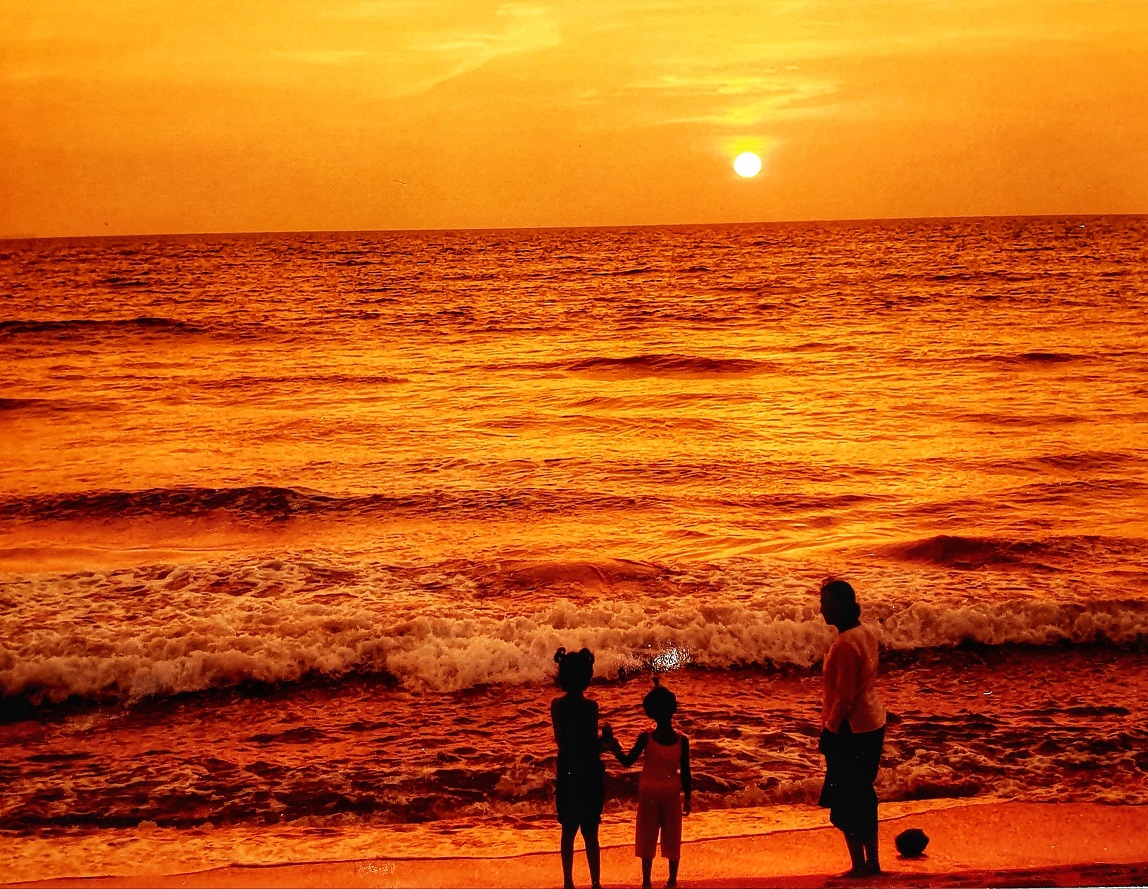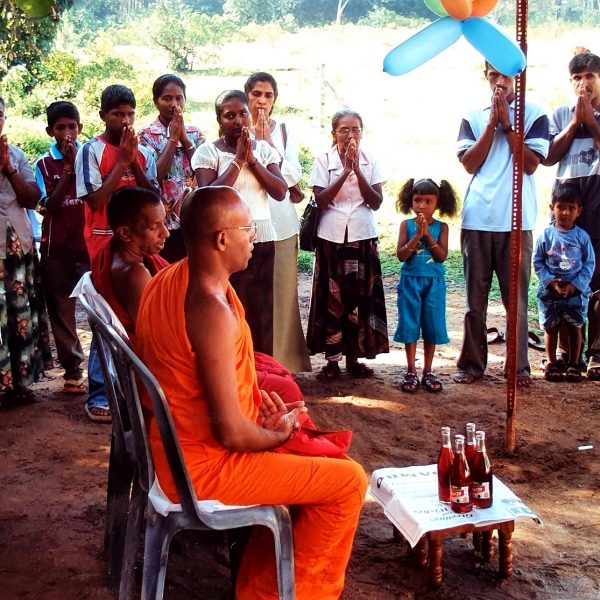Sri Lanka After the Tsunami
How I Ended Up in Sri Lanka

Applying for a Visa for Cameroon
How I ended up in Sri Lanka is a story in itself. I was meant to be in West Africa but fate intervened. I had to apply for a visa for Cameroon within quite a tight timeframe. You can’t apply too early as it’s only valid for a certain period. I sent off the application along with a cheque for the fee and waited. Several weeks and several phone calls later I was still waiting.
Eventually the envelope containing my passport dropped through the letterbox. Unfortunately, it was with my returned cheque and minus a visa. They only accept payment by cash or postal order, something they omitted to tell me in any of our telephone calls.
I re-submitted the application along with a postal order payment and anxiously waited. I’d decided that if hadn’t arrived the day before my trip I would go to London and collect it. Of course, despite more telephone calls it didn’t arrive.
I arrived at the Cameroon embassy to find a note on the door ’embassy closed for 2 days due to national holiday’. I was meant to be flying to Douala in Cameroon the following afternoon and my passport and visa were locked inside.
A Canceled Flight
I was going to be travelling on an overland truck through Cameroon, Nigeria, Togo, Benin and Ghana. We would spend the first couple of days in Douala. So, if KLM could change my flight to a day later, I could still potentially pick up my visa and make my trip.
Of course it is never that straightforward. The flight the following day was full. I was running out of options. I needed to sit down and think things over. I went to the ATM to withdraw some cash and was surprised to see the balance of my account had increased. A scan of my statement revealed a payment by KLM the previous day. They had cancelled my flight in error and had already refunded my money. What a twist of fate. I postponed my Africa trip till the following year and looked for somewhere else to go. I was under a little pressure, I’d rented my house out to go travelling, so would soon be homeless.
Nottingham’s Representative for a Project in Sri Lanka
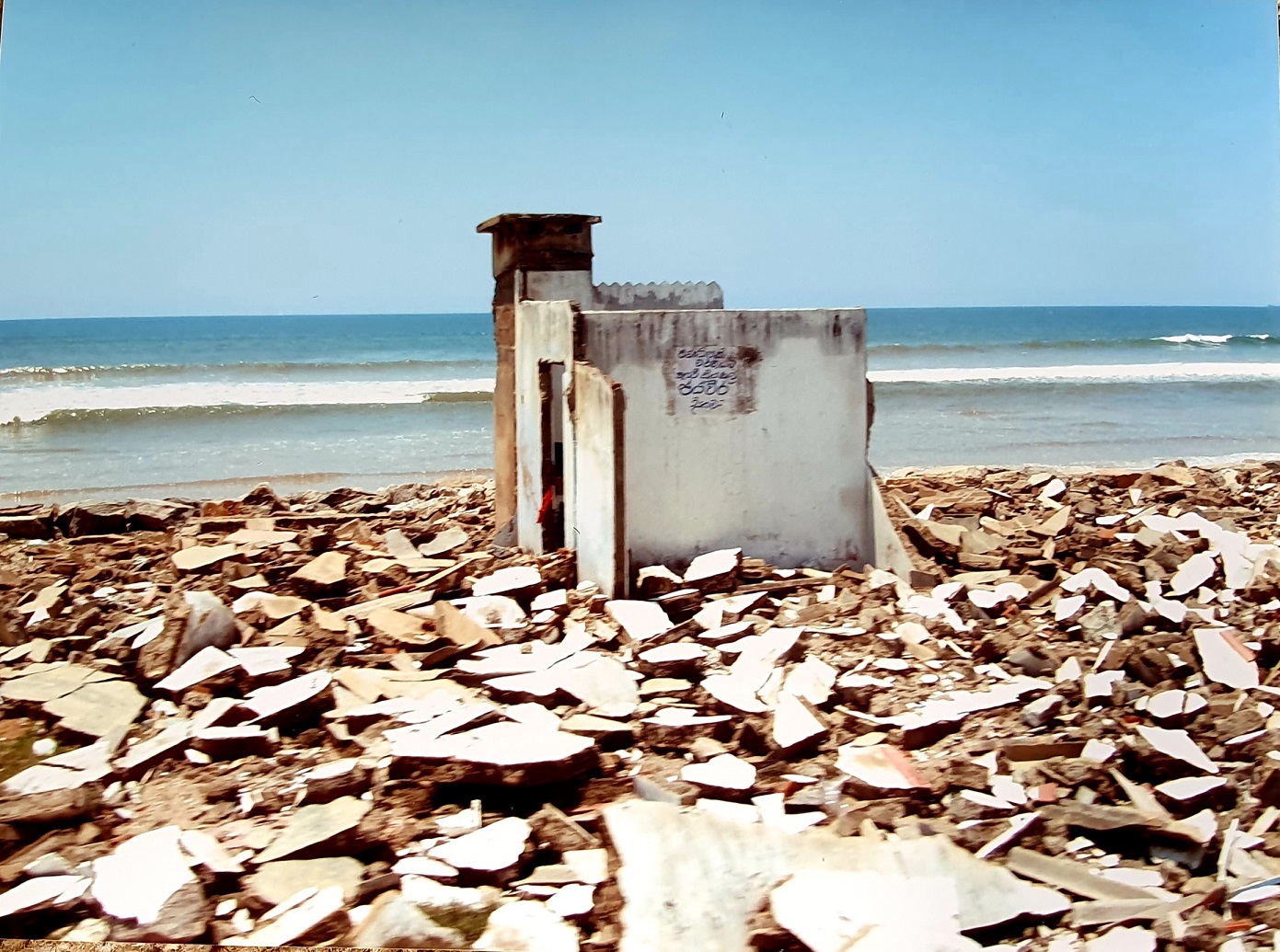
Deva, who ran our local post office was from Sri Lanka. This was just after the tsunami and he had been collecting aid and sending containers full of goods out there. He had also been fundraising and raised enough money to build 3 houses for families who had lost their homes. I had donated and given lots of contributions to the aid shipments. After chatting to Deva he suggested I go to Sri Lanka as Nottingham’s representative for the project. I would meet up with his sister, help with the project and carry out some media interviews whilst I was there.
Little Nottingham

Sri Lanka had been on my wish list for a long time. As I was going to be there for 3 months, I’d also have time to travel and explore the country. After a day relaxing and recovering from my jet lag I was off to see the project. The houses were being built near a small village 18 kms south of Colombo. I was picked up by Deva’s sister, Dinky and driven there.
It was a beautiful spot, in a green meadow with fabulous views. All I could here were the sound of birds. It was a lush paradise. The 3 houses were well under construction. I would be coming back when the contractors had finished to help decorate and get everything ready for the handing over of the keys and the ceremony to bless the houses.
Little Nottingham Village
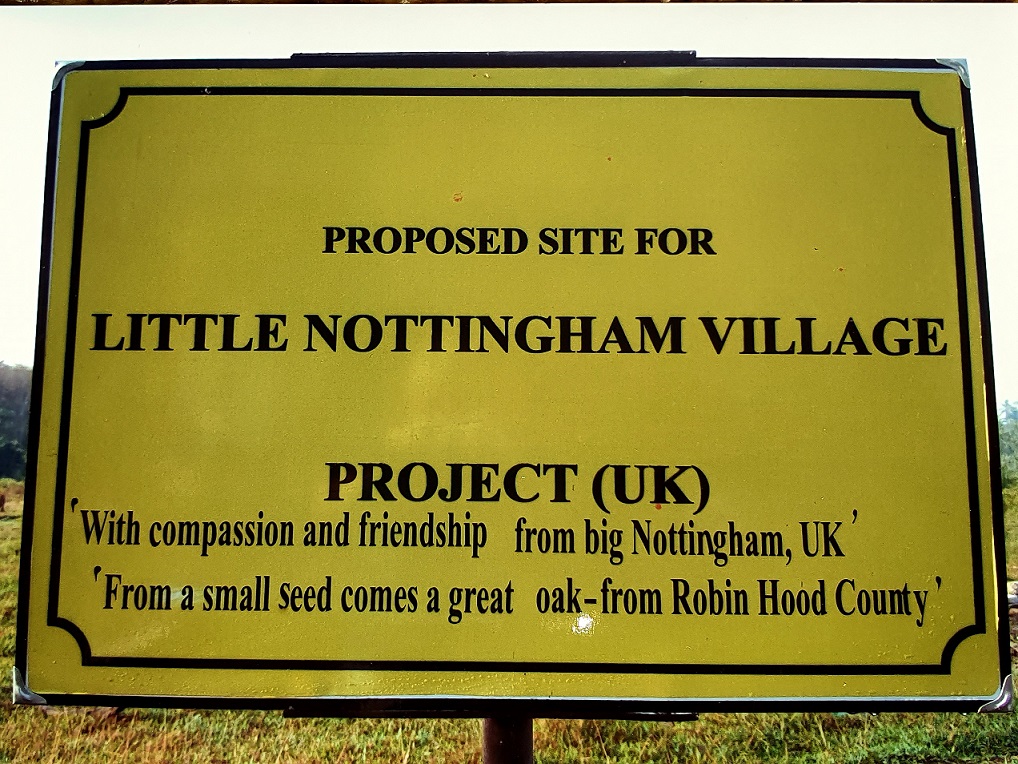
The project is called ‘Little Nottingham Village’. The sign bears this name along with the words ‘ With compassion and friendship from big Nottingham U.K. From a small seed comes a great oak – from Robin Hood country’.
Each house cost £3,500 to build and this included the purchasing of the land. All the money was raised by Deva and the customers of his small post office in Carlton, Nottingham. The name was a thank you to them for their kindness and generosity.
Safety & Security
Each family had the deeds to their land and property. This was extremely important. It meant that generations of their families could now live in these houses in safety and security. There was a big problem in Sri Lanka as many people who lived by the coast didn’t own or couldn’t prove they owned the land their houses sat on. It was the same in other countries such as Thailand. Often these were in prime sea/beach front locations.
Corruption played a part and some of the most desirable land was sold off at high prices to investors, to build large hotels or mansions. This left many families with nowhere to go or some were moved inland away from the sea from which they made their living.
The Families
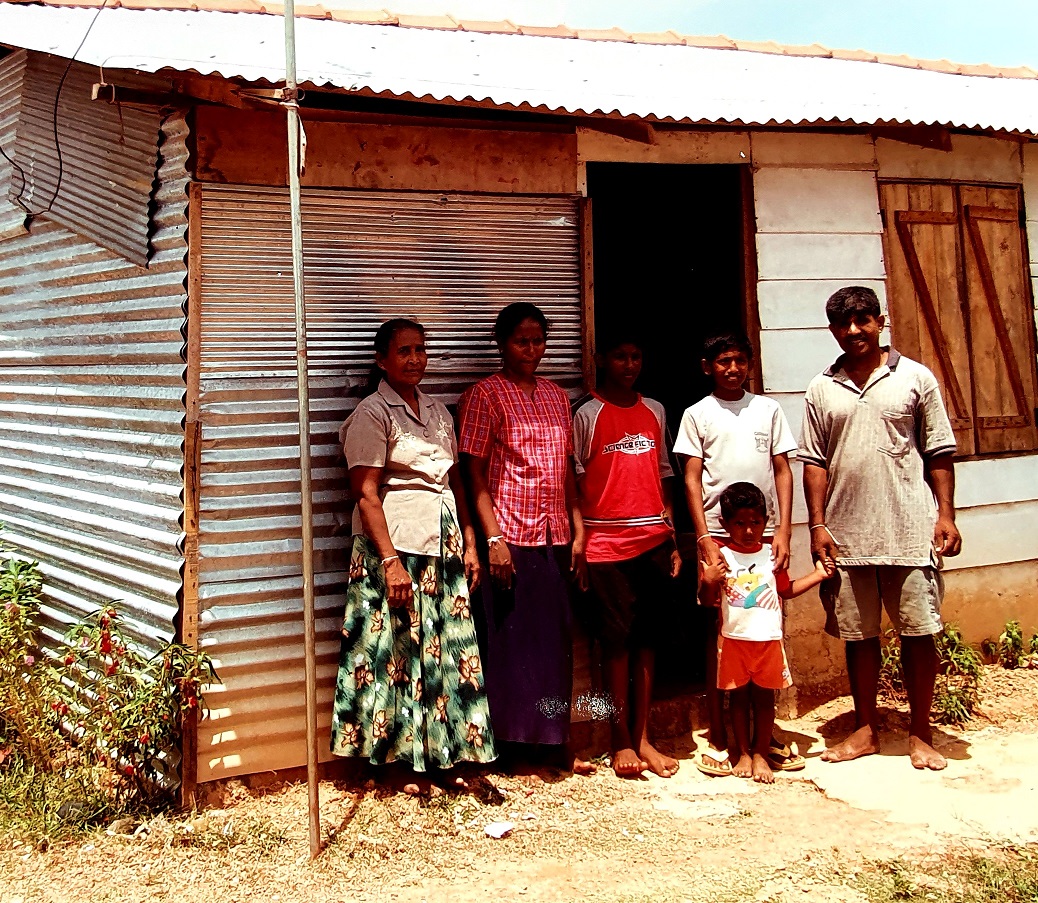
I met the families who would be moving into the houses, they were all lovely. They were just ordinary people who went to bed one night and had a house and a livelihood. The next day the tsunami came and they lost their homes, livelihoods and half their family. There were so many people like this, who then spent the next year in tents, refugee camps or temporary housing made of anything and everything.
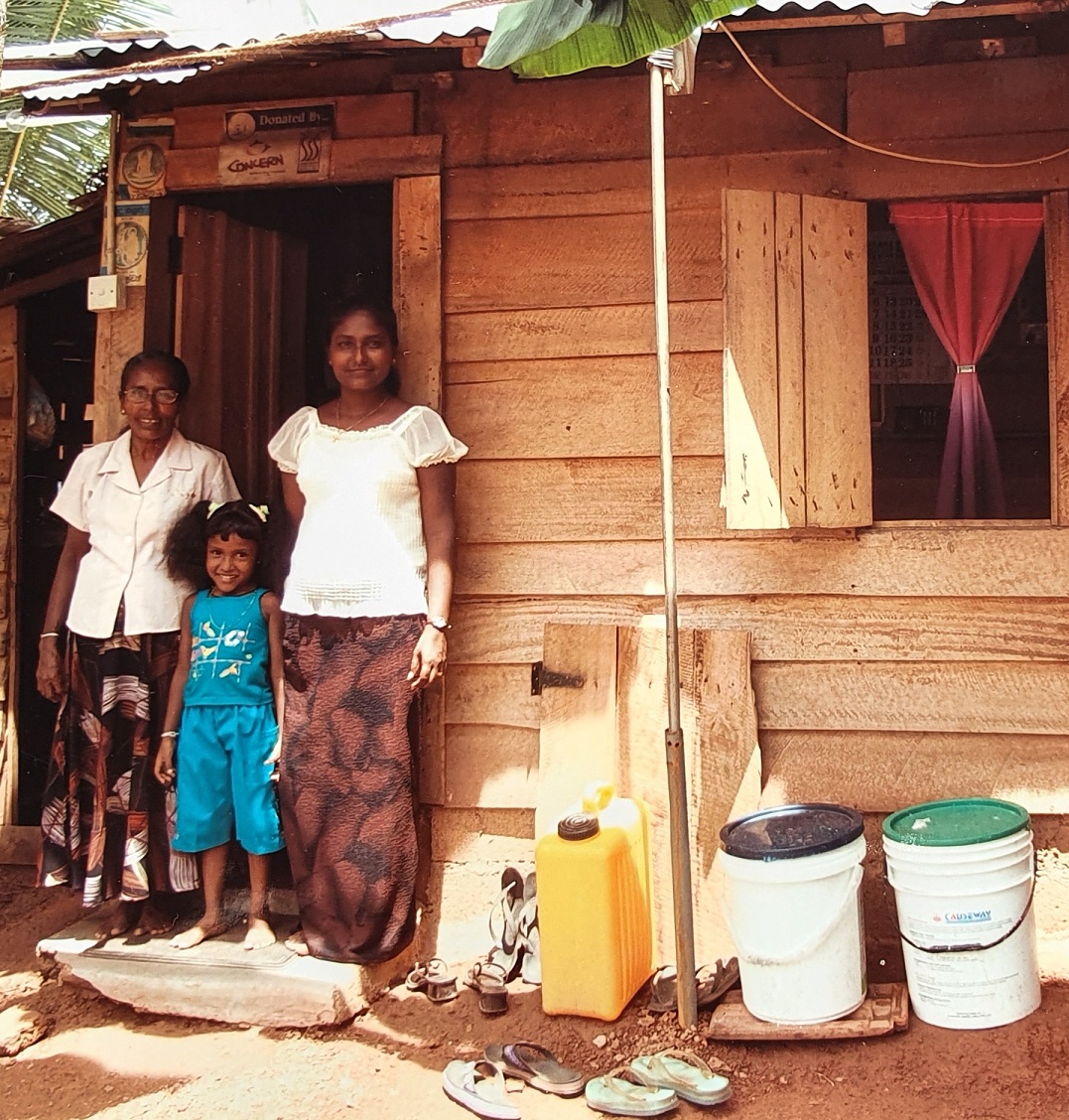
I visited the families at the places they were staying now. One family had been sleeping on the floor of a Buddhist temple for over a year. Another in a wooden hut, the size of a garden shed, in a makeshift camp. The final family lived in a refugee camp in a small tin and wood temporary house in a site with stagnant, dirty water and hordes of mosquitoes.
How Families were Chosen

The families were chosen partly because they could also make a contribution to the local village and all had children. I’m glad that the families had already been chosen, how do you make a decision like that, with so many in need and so many so deserving. In our families were an electrician, a painter and a clerk in a government office. They were people who had always taken pride in their houses and were now living in these awful, cramped conditions.
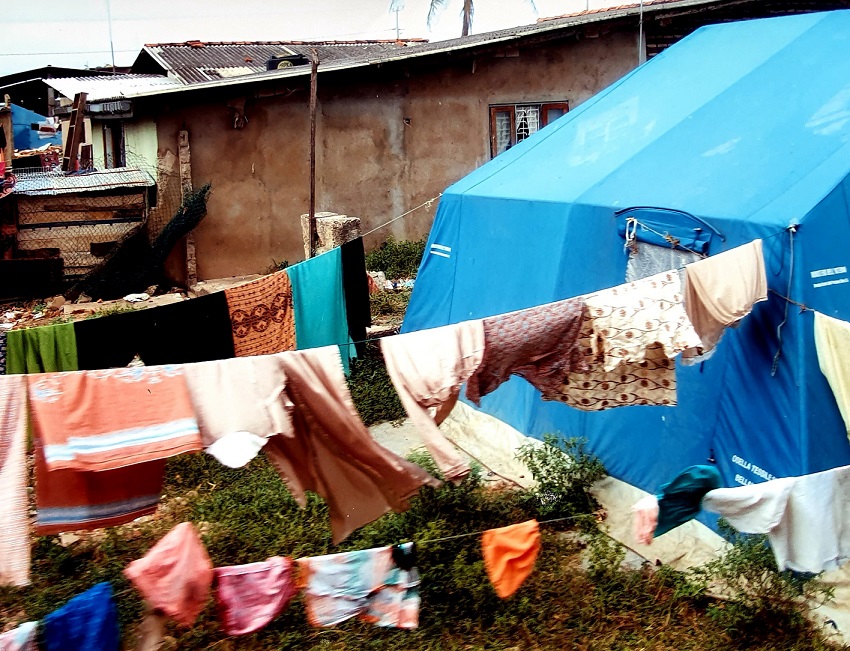
At the camps I visited there were also many tents. All these accommodations were meant to be temporary, short-term options, yet 14 months down the line people were still living in them. Our 3 are the lucky ones.
Flats to House Families
Some small flats are being built to house 288 of the families. Typically they lived in small, detached, one-storey houses. Many don’t want to live in these tiny flats, all joined together and they shouldn’t have to. The population of Sri Lanka was 19.8 million, those inland and in the north weren’t affected by the tsunami. Billions of pounds were donated to help victims of the tsunami. There should be enough to provide each affected family with a house at least as good as the one destroyed. As I said our houses cost £3,500 each to complete and part of that cost was buying the land. Where has all the money gone?
There were so many tents and temporary accommodation but not a lot of building work going on. I read in the paper of a group of tsunami victims who had staged a sit-in at a government office. There land had been taken away and sold. In return they were promised new, better land and a better deal. When they were shown their new land it was very bad, all promises were broken and no compensation received. They staged the sit-in to try to have their original land returned.
NGOs and the Government
I was told that the government were taxing all the aid that came into the country. It also sounded like they were getting their hands on a lot of it too, whilst making life difficult for the NGOs. Also bureaucracy and lack of organisation, leaving aid to rot at ports and airports. Their were more stories from Sri Lanka and Thailand of people not being re-housed, but big hotel chains and corporations buying all the beach-front land for development, suddenly producing ownership deeds, leaving the locals that previously lived there with nowhere to go.
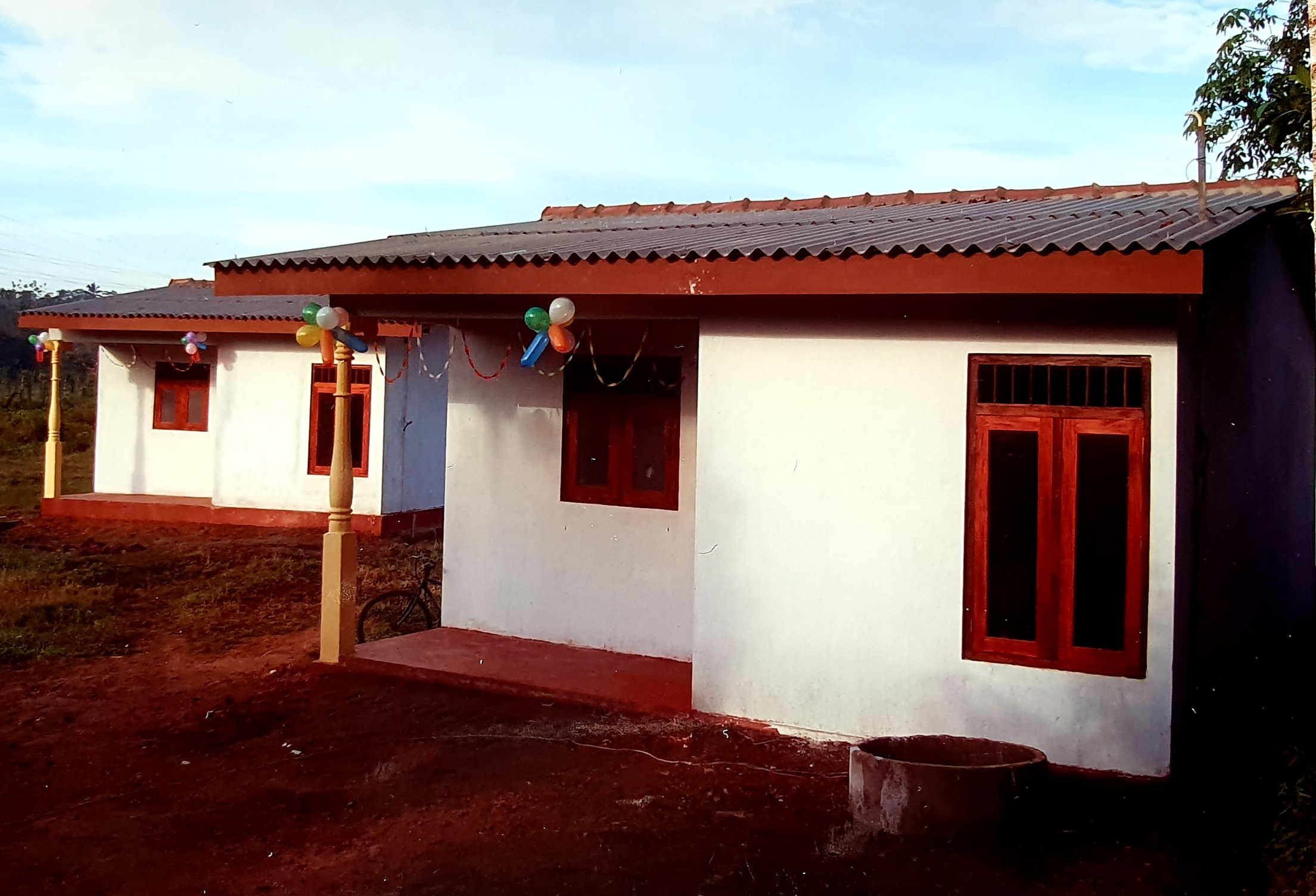
As the houses were still under construction there was nothing for me to do. It was time to set off on my travels and return in a few weeks. You can read of my adventures in the hill country, trekking through tea plantations, climbing huge rocks, visiting an elephant orphanage, an encounter with a pregnant leopard, visits to beautiful beaches and stilt fishermen in my other Sri Lankan posts.
The Ceremony to Bless the Houses and Hand Over the Keys

I received a message to say the houses were almost ready so I jumped on a train and headed back to Colombo. I was met by Dinky and her daughter, I’d be staying with the family for a few days. We were busy painting and putting the finishing touches to the properties. The handover had to take place on Friday 24th February. This is an important date in the Buddhist calendar. All the astrological signs were good and anything given on this day will be very lucky. I spend the whole evening before blowing up balloons.

The day arrives and we are at the site very early to adorn the houses with balloons and streamers made of crepe paper. The monkeys came to greet their new neighbours as did the storks, the cows and a monitor lizard. Two Buddhist monks arrive to bless the houses and people, to ensure good luck and happiness. I was also blessed. The head monk also invited me to join the ceremony.
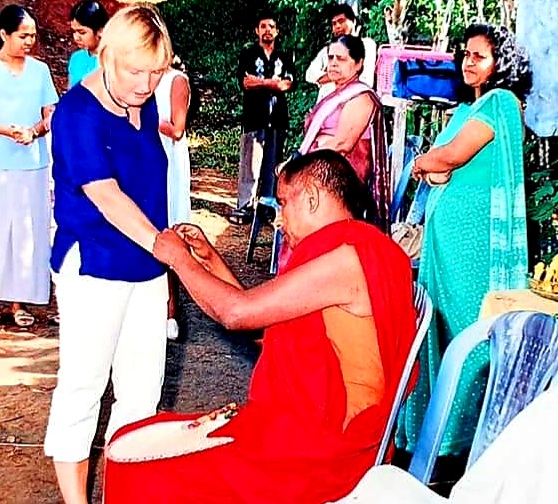
Handing Over the Keys
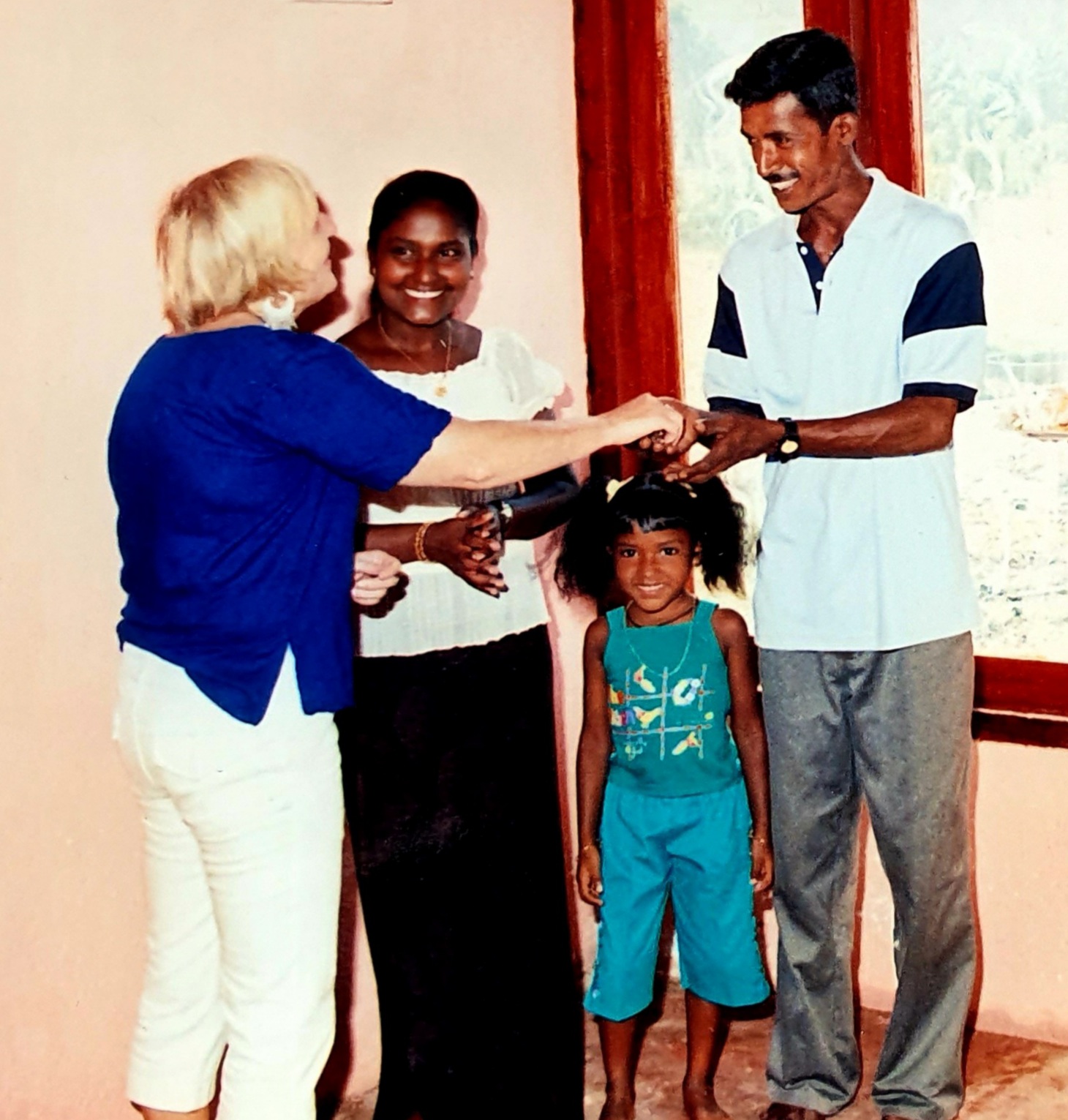
The day was a mixture of emotions. All the families were there and when the monk started to talk about the tsunami everyone’s eyes welled with tears, from the youngest child to the oldest grandmother. It was very moving and my eyes filled with tears too, which I gulped back.
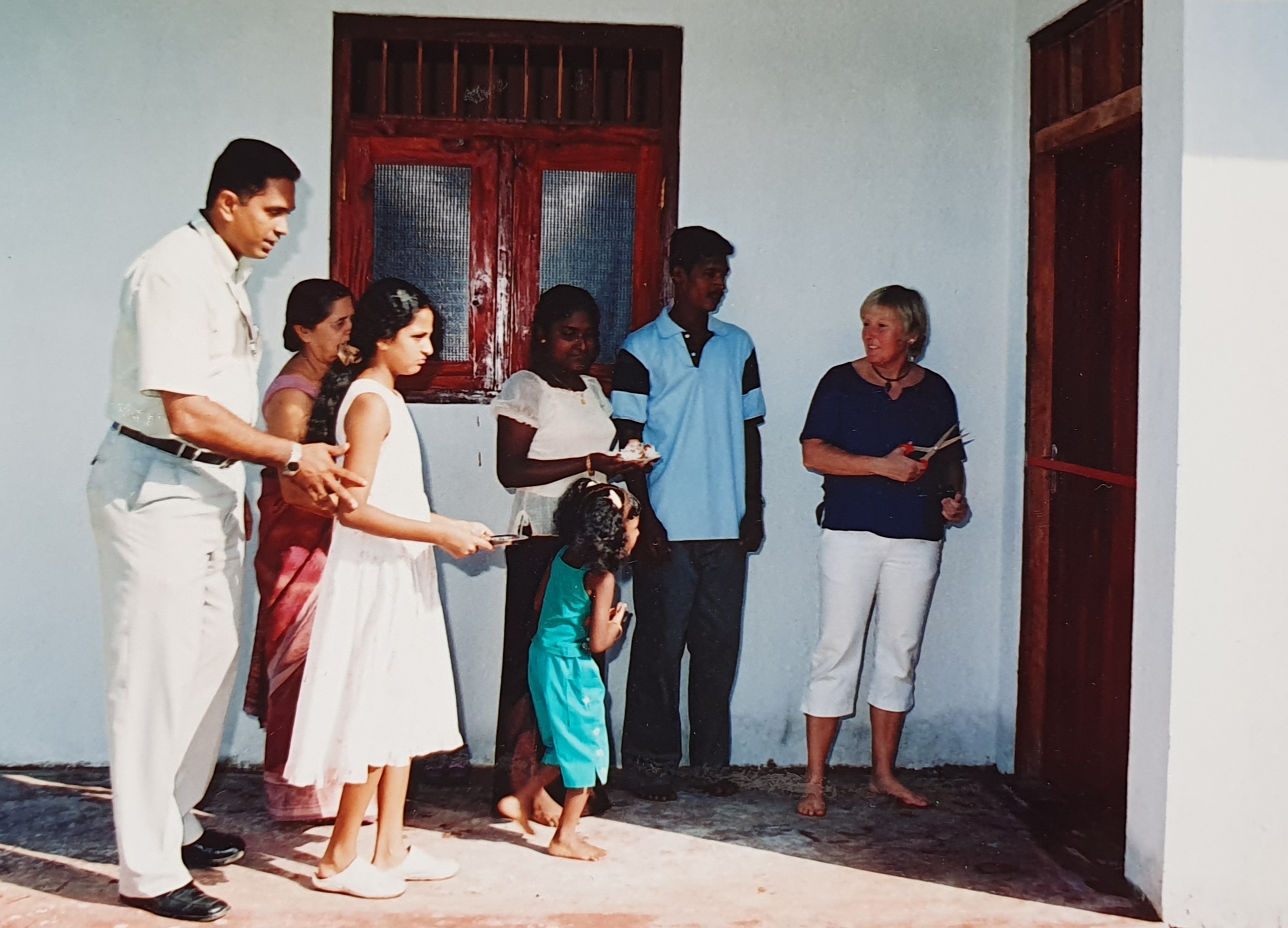
Soon it was time to perform the opening ceremonies and hand over the keys. One by one the ribbons were cut and the keys and deeds handed over to the families. I was asked to cut the ribbon for house number 2 and hand the keys over to the family. The Buddhist monks said prayers in all the houses and the new owners burnt incense and presented offerings.
Radio Nottingham & The Evening Post
Everyone had brought home-made food and there was quite a feast. After eating and chatting for a while everyone dispersed. Later I gave a live radio interview for Radio Nottingham and sent a report to our local Nottingham newspaper, the Evening Post. I described the ceremony, the tears of sadness and joy, the families and the houses. All of the families had asked me to thank the people of Nottingham and describe how much their kindness was appreciated and what a difference it had made. I also described what I had seen travelling around the country and the horrendous conditions many people were still living under. It had been an incredible day.
Goodbye to Sri Lanka
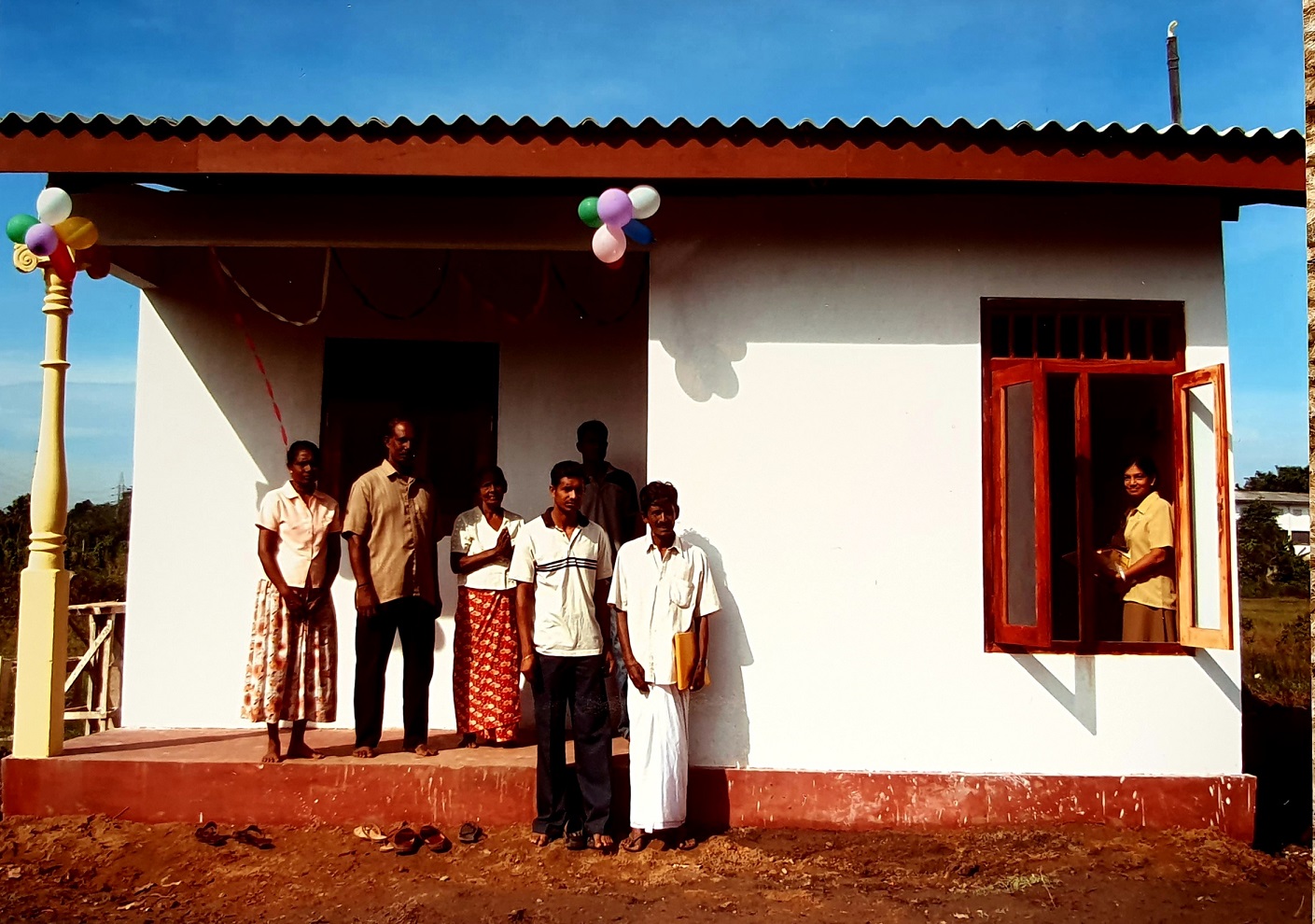
I spent another couple of days with the family, watching cricket, going to the beach, eating lovely food and watching Knight Rider in Singhalese. Also very funny was hearing Karma Chameleon sung in Singhalese, which was playing on one of the local buses.
Dinky’s son is still scared of the sea and I witnessed that when we visited the beach. He was at the beach the day the tsunami struck, he had to run for his life, he still has nightmares about it.
I said a very sad goodbye to my Sri Lankan family. It was time to continue exploring the country.
Book your stay in Sri Lanka
